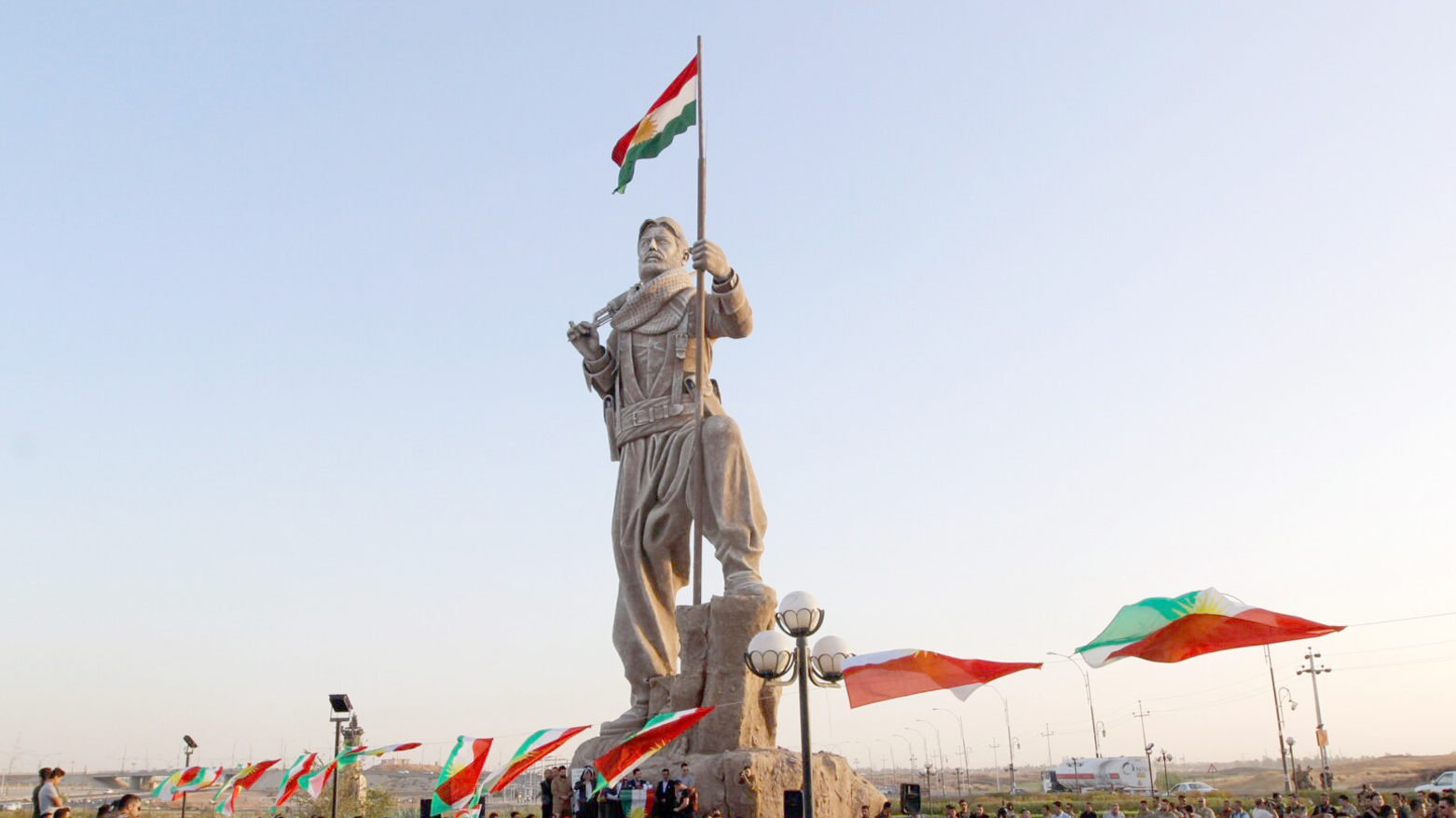Kirkuk University Language Dispute Resolved After Parliamentary Intervention
Following a Kurdistan24 report, the Deputy Speaker of the Iraqi Parliament intervened to resolve an issue at Kirkuk University where Kurdish students were barred from using their language in exams. The university president has guaranteed this will not happen again.

ERBIL (Kurdistan24) – A contentious issue that erupted at Kirkuk University on Monday, where Kurdish students were reportedly prevented from answering exam questions in their native language, has been swiftly and permanently resolved following direct intervention from the Deputy Speaker of the Iraqi Parliament. The resolution, confirmed by the President of Kirkuk University, ensures that the incident will not be repeated and that the constitutional right of students to use the Kurdish language in their examinations will be upheld.
The incident on Monday quickly drew attention after it was highlighted in a live broadcast by Kurdistan24 from Kirkuk.
According to Hemin Delo, Kurdistan24's correspondent in the city, Kurdish students at the College of Law faced a significant obstacle when they were initially barred from answering their exam questions in Kurdish.
This action appeared to be an implementation of a controversial directive issued earlier this summer by Iraq's Ministry of Higher Education, which sought to ban the use of the Kurdish language in examinations at universities in Kirkuk, Mosul, and Diyala.
Following the Kurdistan24 report, the issue was immediately escalated. Dr. Shakhawan Abdullah, the Deputy Speaker of the Iraqi Parliament, placed a direct call to the President of Kirkuk University, Dr. Imran, to address the matter.
The Kurdistan24 correspondent was present during their conversation, which led to a clear and immediate resolution. The university president explained that a delay in the distribution of exam questions translated into Kurdish at the College of Law had occurred because the university was notified late about the requirement.
This delay led to confusion and frustration, causing several students to leave the exam hall in protest. However, he confirmed that the questions were eventually distributed in Kurdish.
Crucially, the President of Kirkuk University gave a firm promise to the Deputy Speaker of Parliament that this issue would not be repeated in the future. He affirmed that Kurdish students will be able to answer their exams in the Kurdish language, aligning the university's practice with the constitutional status of Kurdish as an official language of Iraq.
Hemin Dalo subsequently reported from Kirkuk: "The Kurdish language issue at Kirkuk University has been permanently resolved, and the problem that occurred today will not happen again."
This resolution marks a significant de-escalation of a conflict that has been simmering for months, a conflict that struck at the heart of Iraq’s constitutional guarantees for linguistic and cultural rights.
As Kurdistan24 previously reported in July 2025, the federal Ministry of Higher Education in Baghdad had issued an official letter that directly challenged the long-standing academic accommodation for Kurdish-speaking students. The ministry's directive, issued on July 16, formally canceled a 2010 provision that had permitted students at the universities of Kirkuk, Mosul, and Diyala to take their exams in Kurdish, with their answers to be translated for grading. The letter went further, threatening non-compliant universities with legal action.
The ministry's decision was immediately condemned as a violation of the Iraqi constitution. Article 4 of the 2005 constitution explicitly states: "The Arabic language and the Kurdish language are the two official languages of Iraq." The constitution also guarantees the right to education in one's mother tongue and requires the use of both languages in federal institutions. The ministry’s directive was therefore seen not just as an administrative change but as a direct assault on a cornerstone of the post-2003 political compact.
The policy reversal was particularly inflammatory because it specifically targeted universities in the Kurdistani territories, areas defined under Article 140 of the constitution whose final administrative status remains unresolved.
Forcing Kurdish students in these politically sensitive regions, many of whom complete their primary and secondary education in Kurdish-language schools, to sit for complex university exams in Arabic was viewed as a measure that would place them at a severe academic and professional disadvantage.
The backlash to the ministry's directive was swift and widespread. The Kurdish Academy, the highest linguistic authority in the Kurdistan Region, issued a powerful statement condemning the move as a "racist decision" and demanding its immediate reversal along with a formal apology to the Kurdish people. The Academy argued that the directive was both illegal and unconstitutional and stood in direct opposition to the pluralistic principles of the Iraqi state.
The issue also reverberated in the Iraqi Parliament. MP Dr. Nahla Qadir Muhammad Al-Afandi forcefully condemned the ministry’s order as a "blatant violation" of the constitution. In a formal statement, her office rejected the ministry's justification that education should be conducted "only in the Arabic and English languages," pointing out that Article 4 not only establishes the equality of Arabic and Kurdish but also extends educational rights to the Turkmen, Syriac, and Armenian languages.
Dr. al-Afandi's office vowed to take a "strong stance" against the directive and warned that it would "resort to the court if necessary," citing several rulings by the Iraqi Federal Court that emphasize the equality of all Iraqis.
Monday's incident at Kirkuk University represented the first major test of this controversial directive during the new academic examination period. The rapid intervention by the Deputy Speaker of Parliament and the subsequent commitment from the university president to protect the linguistic rights of Kurdish students appear to have successfully neutralized a potentially explosive situation on the ground.
The outcome suggests that despite the official ministry letter from Baghdad, political and constitutional pressures have prevailed, at least for now, in upholding the official status of the Kurdish language within the federal education system in Kirkuk.
Kuridstan24 correspondent in Kirkuk, Hemin Delo, contributed to this report.